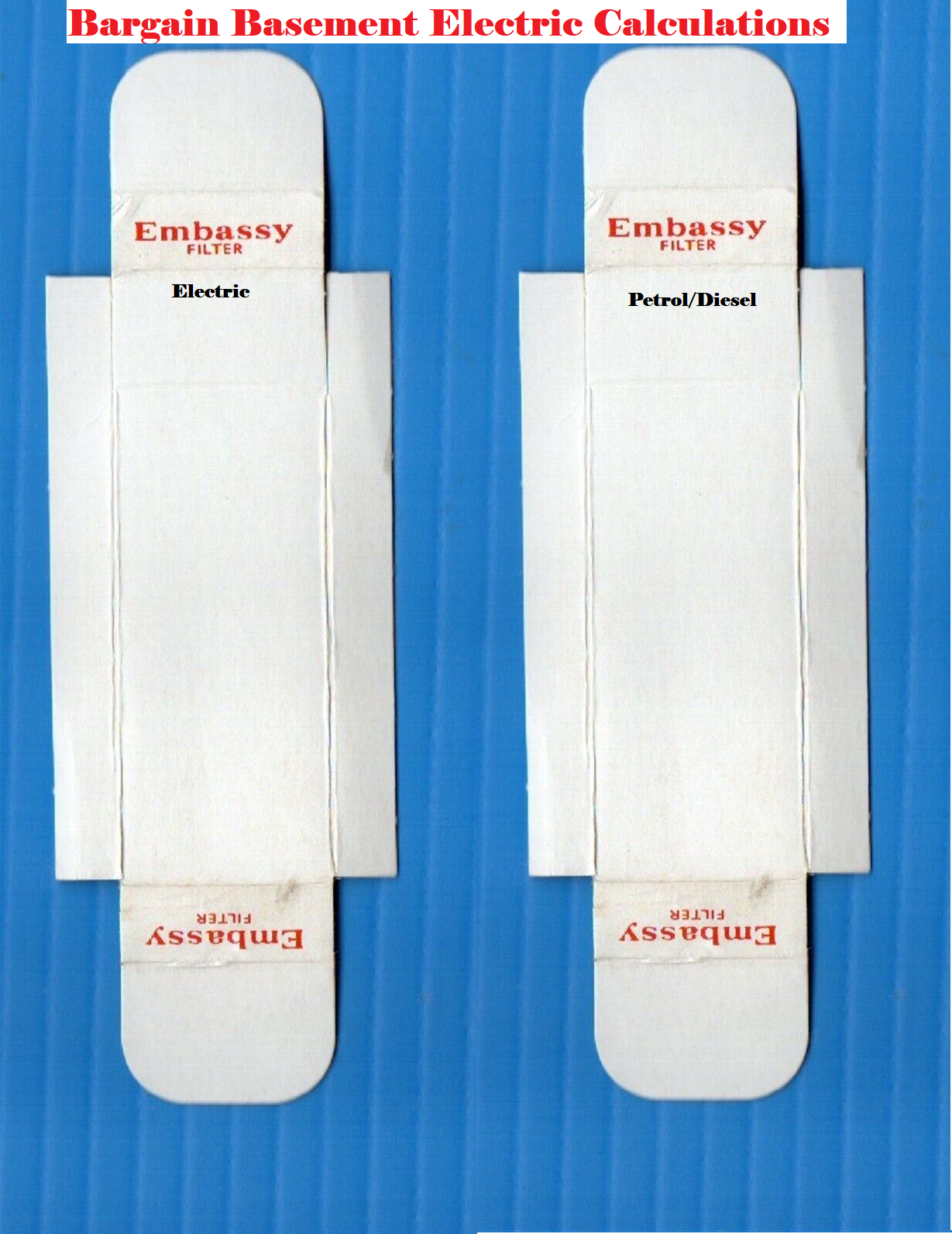Mandrake wrote: 24 Feb 2020, 19:55
Hi Neil,
Yes I've ruled out the Zoe for a few reasons. Here are some of them:
1) The 22kWh model (as that one is) doesn't have a range much more than what I have now, maybe 75 miles in summer, whereas the 30kWh Leaf will do a bit over 100. So I don't feel the range increase is enough over the 63 miles the Ion originally did when I got it to be worth the cost and hassle of swapping. The 40kWh Zoe has a range of around 140-150 miles however is much more expensive pushing up near £20k as it is still a very new model.
2) The 22kWh and 40kWh Zoe use AC rapid charging, originally at 43kW but more recent models are 22kW. No other EV on the market uses AC rapid charging at these speeds and it is considered to be oddball and obsolete now, with all other EV's using DC for rapid charging. Many new networks such as Instavolt do not support AC rapid charging at all (Chademo and CCS only) and while you can plug into a normal Type 2 "Fast" charger with a Zoe, most of those are not 22kW they are only 7kW. Being able to rapid charge a Zoe in the future is going to become problematic.
3) There are numerous reliability problems reported with the Zoe - it's a French car remember...

And unlike a Citroen you get French unreliability but without the French quirkiness that we love. The AC onboard charger has to work all the way from 3kW to 43kW and there are many design compromises in its design to do this.
It is extremely inefficient at anything less than 7kW, it has a tendency to trip RCD's in charge points and houses, it is extremely fussy about testing the Earth connection and will refuse to charge if the earth connection is higher than 100 ohms from memory, whereas other cars are much more lenient, so there are a lot of reports of charges failing which Renault are not able to solve.
The onboard charger and high voltage system seems to suffer from a worrying number of failures, also the aircon compressor is a known weak point often needing regassing in only two years or failing outright, and as it uses the A/C compressor to cool the battery this can cause problems with rapid charging.
There were reports of rapid battery degradation which caused Renault to issue a firmware update to the Battery management system to "fix" this problem, however I'm a little cynical that they have just modified the reporting algorithm to make the battery seem better without actually unlocking any more capacity. To be fair Nissan released a similar firmware update for the early 30kWh Leaf's to address what initially appeared to be rapid degradation.
4) The rear seat is not split - which is a bit of a dealbreaker for us with a child seat in the rear but the need to squeeze in as much stuff as we can sometimes. (We use the split rear seat in the Xantia a lot let alone the Ion - trips to Ikea etc)
5) Interior build quality is noticably tacky and cheap with lots of hard plastics etc - very much like the Ion which has a very bare bones interior. The Leaf has much better interior build quality that is more comparable to the Xantia Exclusive.
6) There are a lot of reports of problems with the heating system in the Zoe ranging from the heater failing altogether (usually due to the A/C compressor failing as it is a heat pump system) to control system problems that cause it to put old cold air when it should be putting out hot air, while the heating system in the Leaf is well regarded and reliable with almost no reports of failures.
7) It's a bigger car than the Ion for sure, but it's smaller than a Leaf. You can probably tell better than me since you drive one, but a Leaf is roughly a Xantia sized interior and a true 5 seater while the Zoe is a similar size to a Renault Clio.
The 50kWh Zoe does address some of the issues above - it uses CCS charging and it has a greatly improved interior and interior build quality from what I've seen, has a split rear seat, as well as a nice bump in range (something like 180 miles) but they're brand new and still very expensive as a result, and I still worry greatly about the reliability of the high voltage system as it's still French...
On the plus side all Zoe's have active battery thermal management so should see less battery degradation than the Leaf.
I'm sure the Zoe works well for some people and it is a step up from the Ion, but it has enough quirks and concerns that it's a no go for me certainly in 22kWh guise.

